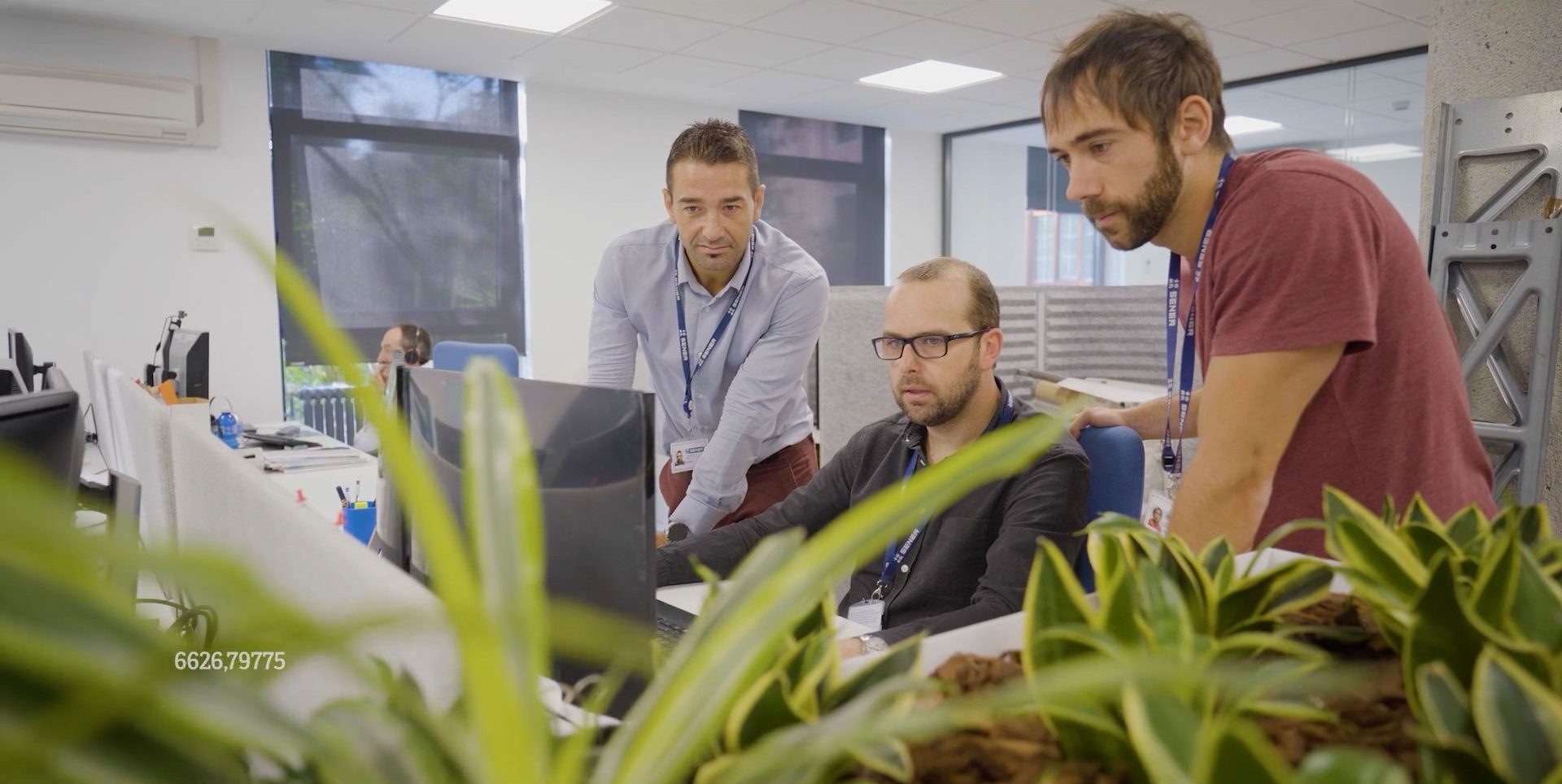






The areas of systematic innovation that will be addressed jointly are the digitalization of the industry and technologies to promote sustainability, among others, carbon capture and use, hydrogen, sustainable mobility, offshore wind or resource management.
The engineering and technology group Sener and the Eurecat technology center have signed a strategic agreement for the joint development of disruptive technologies and differential solutions, as well as their industrial scaling, through hybrid and multidisciplinary work teams of both organizations.
Under the collaboration agreement, Sener and Eurecat consolidate their alliance to promote innovative multisector technologies at the national and international level and reinforce their commitment to open innovation, acceleration of the innovation cycle and scaling and transfer to the differential technological solutions.
According to the Director of Innovation at Sener, Òscar Julià, “for a highly diversified group like Sener, it is essential to establish strategic collaborations that connect us with the ecosystem. Society and the economy address very complex technological challenges (in the field of energy, mobility, digitalization, among many others) that require open and collaborative innovation models.”
The Eurecat technology center and the Sener group “thus establish synergies aimed at promoting the industrial scalability of disruptive and cutting-edge technologies, in addition to leading their application in the company’s value chain and the industrial sector,” underlined the Corporate and Industrial General Director. of Eurecat Operations, Xavier López. In this sense, he has pointed out that “the strategic agreement with Sener will allow for closer ties of collaboration between both institutions, materialize the deployment of new technologies and enhance the exchange of knowledge.”
The areas of systematic innovation that will be addressed jointly are the digitalization of the industry and technologies to promote sustainability, among others, carbon capture and use, hydrogen, sustainable mobility, offshore wind or resource management.
Since 1956, the Sener group has been developing engineering and high-tech projects, with a high sustainability component, in different international markets, to contribute to the development of new solutions that respond to society’s challenges. Currently, Sener has more than 3,400 professionals around the world, specialized in diverse markets such as aerospace and defense, energy, mobility and infrastructure, data center engineering, digital and naval. By combining diverse profiles and disciplines, the company is capable of tackling projects of great technical complexity, such as the construction of a 2.5 MW electrolyzer for the Petronor refinery in Muskiz (which will generate the first green hydrogen in the Basque Country), Gate Terminal in the Netherlands (one of the largest liquefied natural gas terminals in Europe) or the development of HiveWind, an innovative semi-submersible floating platform for large offshore wind turbines (over 15 MW).
Eurecat is the main technology center in Catalonia and the second largest private research organization in southern Europe. It brings together the experience of more than 700 professionals and provides services to nearly 2,000 companies. Applied R&D, technological services, highly specialized training and specialized technological consulting are some of the services that Eurecat offers for both large and small and medium-sized companies in all sectors. Eurecat stands out for being a technological center of an interdisciplinary, multi-technological and multi-sectoral nature, which allows us to address the challenges and needs from a systemic technological perspective that is especially adjusted to the characteristics necessary to promote technological development. The technology center participates in more than 200 large national and international R&D+ consortium projects. The added value provided by Eurecata accelerates innovation, reduces spending on scientific and technological infrastructure, reduces risks and provides specialized knowledge tailored to each company.